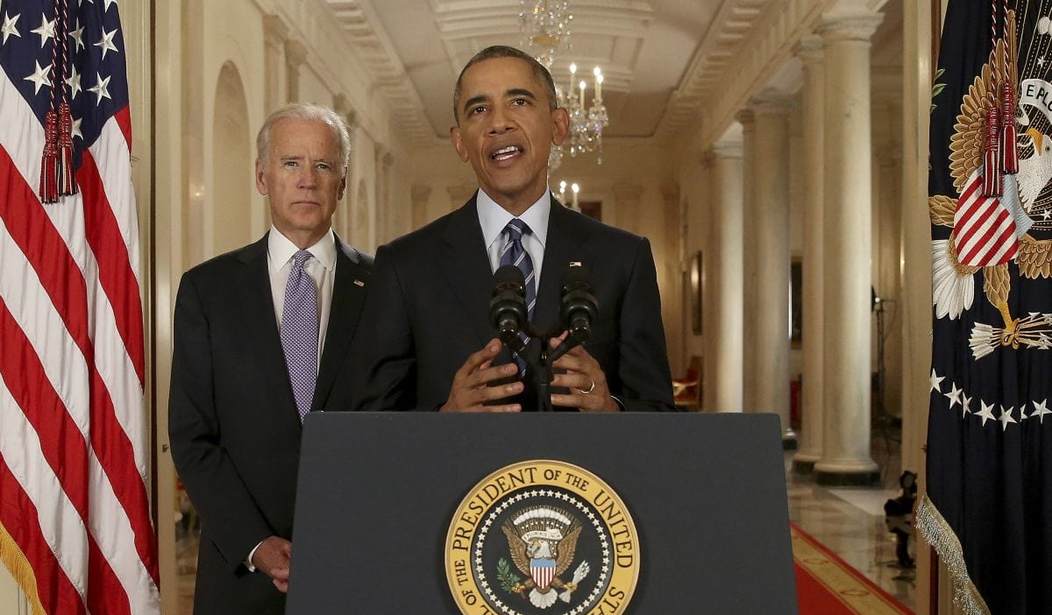The U.S. attack on Syrian chemical weapons infrastructure was almost a sideshow compared to the main event playing out in the Middle East today. The axis of Iran, Syria, and Hezbollah, buttressed by Russian air power, is slowly building strength with the clear intent of being able to threaten Israel.
Meanwhile, European powers, desperate to save the Iran nuclear agreement before Donald Trump pulls the plug on the deal sometime in May, are involved in intense negotiations with the U.S. as they try to satisfy U.S. concerns about the agreement.
The effort will almost certainly fail. Even if the U.S. and Europe can agree to address concerns about Iranian missiles and the so-called “sunset provisions” in the deal that allow Iran to restart several parts of its nuclear program within a few years, the likelihood that Iran would accept any changes is remote.
Even the far-left newspaper Haaretz has few illusions about the Iranians:
If we establish that Iran is indeed trying to establish a permanent military presence in Syria, Israel should adopt a clear and firm deterrent posture designed to prevent Iran from doing so. To this end, it should adopt an approach of “coercive diplomacy” – that is, the credible threat to use military force precisely to avoid conflict and achieve the desired diplomatic outcome.
As part of this approach, and to induce the Syrians to put an end to Iran’s activities in their territory, Damascus must be made to understand that it is truly playing with fire this time, and that Israel will respond by launching graduated attacks against Syrian-regime targets, to the point of threatening its very existence. Iran, too, should be made to understand that if it persists in its efforts it will no longer have the immunity from attacks it has hitherto enjoyed due to geographic distance, and that Iranian regime targets will also be fair game.
This recommendation may lead to a severe escalation and even to war. If, however, it turns out that the Syrians and Iranians have ignored Israel’s warnings, we will be on a path to conflict in any event and it’s better that Iran be put to the test now before it crosses the nuclear threshold.
Syria may not have much of a say in whether Iran continues to construct bases and rocket factories on its soil, but Russia almost certainly does. President Assad ceased being an independent actor long ago, accepting the help — and control — of Russia, and to some extent, Iran, which is working through its proxy Hezbollah.
The Europeans see the Iran deal as something worth saving, but they may be in for a rude surprise when their leaders travel to Washington later this month.
Negotiators met for a fourth time last week and made some progress but were unable to reach agreement on all points, according to U.S. officials and outside advisers to the Trump administration familiar with the status of the talks. That potentially leaves the Iran deal’s fate to Macron, who will make a state visit to Washington on April 24, and Merkel, who pays a working visit to the U.S. capital on April 27, these people said.
“It’s important to them and I know they’ll raise their hopes and concerns when they travel here to the United States in the coming days,” Mike Pompeo, the CIA chief and secretary of state-designate, told lawmakers on Thursday.
Pompeo’s testimony at his Senate confirmation hearing came a day after the negotiators met at the State Department to go over the four issues that Trump says must be addressed if he is to once again renew sanctions relief for Iran, officials said.
Those are: Iran’s ballistic missile testing and destabilizing behavior in the region, which are not covered by the deal, along with inspections of suspected nuclear sites and so-called “sunset provisions” that gradually allow Iran to resume advanced nuclear work after several years, which are part of the agreement.
Two senior U.S. officials said the sides are “close to agreement” on missiles and inspections but “not there yet” on the sunset provisions.
It is not likely that sanctions on Iran will “snap back” as President Obama famously promised at the time the deal was negotiated. No European country is interested in cancelling or pulling back its investments in Iran and they will blame Trump if Iran pulls out.
Even if Iran were to agree to fix some of the flaws in the deal, it won’t stop their drive to threaten Israel or our Sunni Arab allies, nor will it slow Tehran’s drive to massively increase its influence in the Middle East at the expense of the U.S.










Join the conversation as a VIP Member